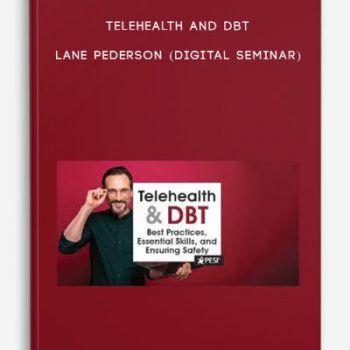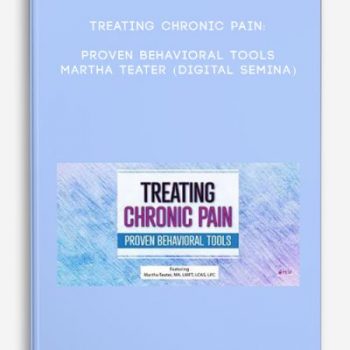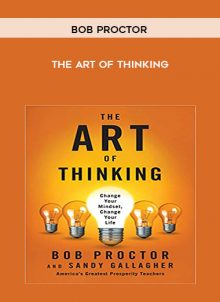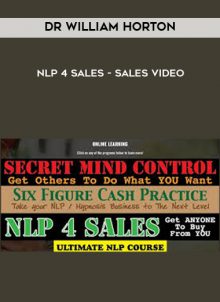Private Practice in a Pandemic & Beyond: How to Stay Focused, Profitable, & Secure – LYNN GRODZK
Description:
Dialectical Behavior Therapy is a powerful, evidence-based treatment that allows clinicians to provide positive outcomes for clients of all ages struggling with stress, depression, trauma, suicidal and self-destructive behaviors and a variety of other clinical presentations.
This 3-day Certification Training will build the core competencies you need to bring DBT into your clinical practice and effectively use it with a wide range of client types. In just 3 days you’ll be given a roadmap to treat individuals using the skills and techniques from DBT so you can help your most challenging clients reach new levels of healing.
Even if you’ve completed other Dialectical Behavior Therapy (DBT) trainings, this program will increase your competency and clinical sophistication with DBT when working with adults, youth, substance users and trauma survivors in a wide variety of settings.
Best of all, this training meets the educational requirements when applying to become Certified in Dialectical Behavior Therapy (C-DBT) through Evergreen Certifications. Certification lets colleagues, employers, and clients know that you’ve invested the extra time and effort necessary to understand the complexities of using DBT in counselling. Professional and clinical experience standards apply.
Outline:
Foundations of DBT
- Biosocial Theory
- Characteristics of DBT
- DBT as an evidence-based practice
- Dialectics: the balance of acceptance and change
DBT in the Clinical Setting
- Application of DBT in the individual and group therapy setting
- Skills training methods
- Validation strategies
- Research and limitations
DBT Skills Training
Mindfulness: Cultivate the Skills at the Core of Successful DBT Therapy
- Acceptance vs. judgement
- Wise mind – achieve harmony between emotion and reason
- Accessible exercises for building mindfulness skills
- Observation – keep clients calm, centered and aware
- Describe – overcome assumptions
- Participation – release judgement and fear
- Strategies for teaching mindfully and exercises for therapy
Interpersonal Effectiveness: Skills to Build Better Relationships and Lives
- Tools to identify strengths
- Balancing relationships with self-respect
- Exercises and role play guidance on how to:
- Develop healthy assertiveness skills
- Enhance conflict resolution skills
- Build empathy
- Keep problems from building up
- Resist pressure
- Top strategies for changing behavior
Emotion Regulation: Practical Skills for Healthier Emotions and Greater Resilience
- Strong emotions and poor coping skills
- How to change unwanted emotions
- Reduce emotional vulnerability while practicing self-care
- Opposite action skills to reduce maladaptive behavior
- Emotion Regulation exercises
- Self-soothing strategies that work
- Learn the sleep hygiene protocol
Distress Tolerance: Skills to Cope with Painful Moments and Survive Crisis
- Developing crisis survival and reality acceptance skills
- 4 options to solving problems
- Problem solving case studies
- Using pros and cons to make decisions
- STOP skills to manage crisis situations
- The steps to practicing radical acceptance
- Tools to accept change
DBT in Clinical Practice
- Analyzing behaviors; chain analysis & missing links analysis
- Diary cards and homework with clients
- Identify therapy interfering behaviors
- Develop skills to identify and manage self-harming & suicidal behaviors
Self-Harm and Suicidal Crises: A Roadmap for Assessment and Intervention
- Screening and assessment tools for self-harming behaviors
- Interventions and treatment considerations for the self-harming population
- Suicide risk as a skills deficit problem
- Tools and techniques to assess for level of risk
- Firearms, medications, and lethal-means restriction plans that work
- Safety plans and crisis intervention
Adapt DBT with Different Populations
- Children and adolescents
- Trauma survivors
- Substance abusers
DBT: The Therapist and Consultation Group
- 3 ways to decrease therapist burnout
- The characteristics of an effective DBT team
- Integrating DBT into your practice
NLP online course
So what is NLP?
Firstly, NLP stands for Neuro-Linguistic Programming. Secondly neuro refers to your neurology;
Thirdly linguistic refers to language however, programming refers to how that neural language functions.
As a result,In other words, learning NLP is like learning the language of your own mind!
Moreover, NLP is the study of excellent communication–both with yourself, and with others.
It was developed by modeling excellent communicators and therapists who got results with their clients.
NLP is a set of tools and techniques, but it is so much more than that.
In conclusion, It is an attitude and a methodology of knowing how to achieve your goals and get results.
Preview Information:
Original Page
Archive Page
More Course: NLP – HYPNOSIS – PHILOSOPHY
Outstanding Course:Grief in the Age of COVID-19: Compassion














Lord –
This is Digital Download service, the course is available at Vincourse.com and Email download delivery.